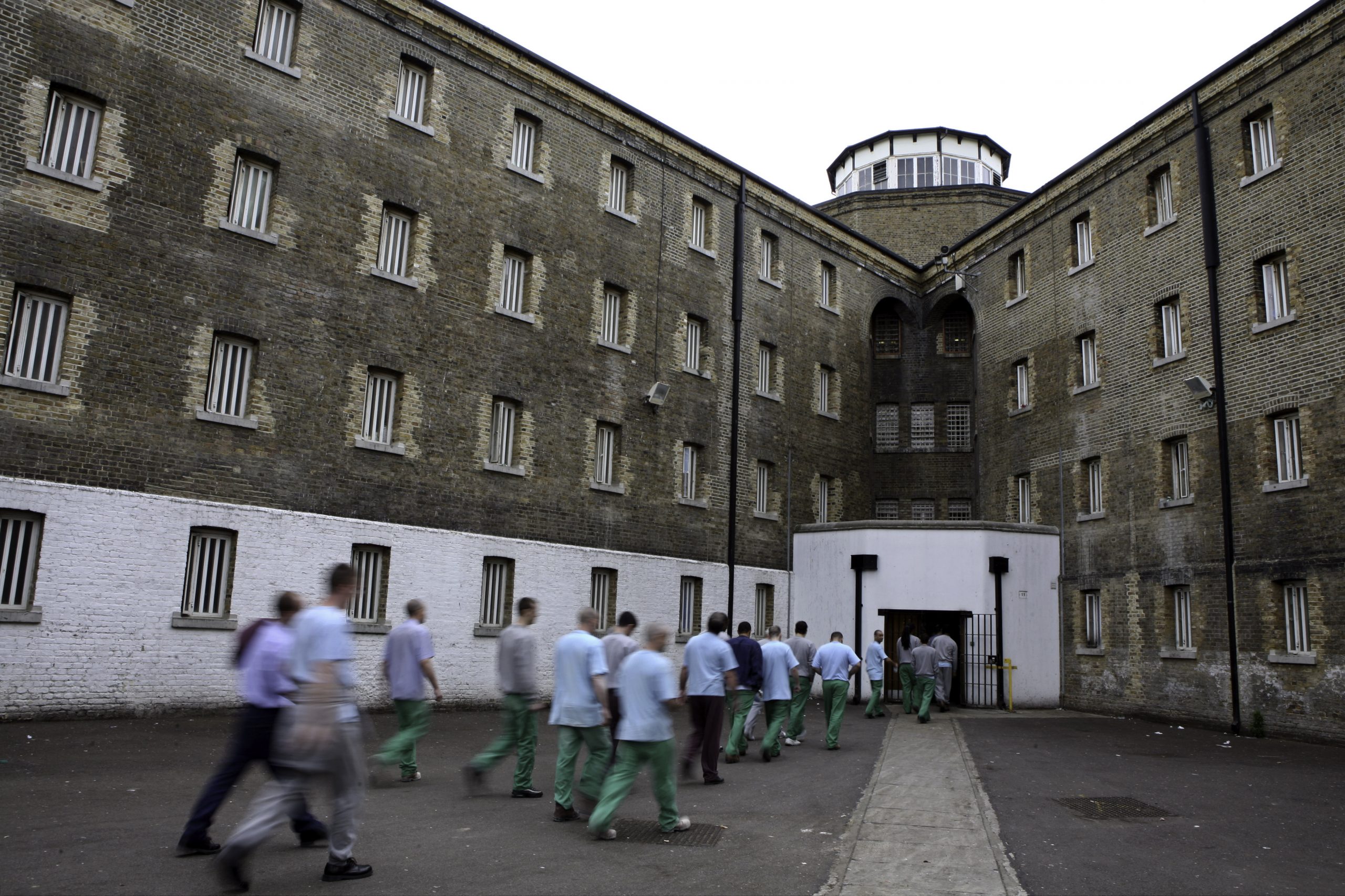800 years of additional time imposed on prisoners for breaking rules

Prisoners return from their jobs to their wings for lunch at Wandsworth prison. Pic by Andy Aitchison
Almost 800 years of additional time imposed on inmates for rule breaking last year has exacerbated overcrowding, resentment and safety issues in prisons, a leading charity has warned. Report by Piers Barber.
Research by the Howard League for Penal Reform shows that the amount of extra time handed down as punishment has increased by 75 per cent in two years. In 2016, it totalled 290,000 additional days, the equivalent of 793 years, and cost the taxpayer around £27 million.
Prisoners accused of breaking a rule can be tried and punished though an internal disciplinary process called adjudications. Additional days can be imposed if a prison refers a case to an external adjudicator, who can then add up to 42 days to an inmate’s sentence.
Additional days were originally introduced to punish unacceptable behaviour, though are now increasingly imposed for lesser offences, such as disobedience and disrespect. The use of the practice varies considerably across the country, with some prisons seemingly far more draconian than others. The most additional time was imposed in Aylesbury prison, where 12,100 extra days were added. Other prisons used the measure minimally or not at all.
Similar disparities were found in private prisons run by the same company. While the Serco-run Thameside prison imposed 113 extra days in 2016, Doncaster prison, also run by Serco, handed down 6,981 additional days – the equivalent of an extra week of time per prisoner.
Additional days were disproportionately applied to black and minority ethnic prisoners, who make up a quarter of the prison population but received a third of the extra days imposed, and to children and young adults, with five of ten most punitive prisons in 2016 mainly holding those aged between 18 and 24 years old.
The use of additional days is contributing to issues of overcrowding and heightened feelings of resentment among inmates. In their report, the Howard League calls for England and Wales to follow the example of Scotland, where the use of additional days was abandoned after it was shown to be ineffective. There has been no discernible decline in behaviour in Scottish prisons since the practice was abolished a decade ago.
Frances Crook, Chief Executive of the Howard League, said: ‘Prisons are out of control. More people than ever before are losing their lives to suicide, and violence and self-injury are at record levels. The adjudications system has become a monster that is making these problems worse.’
‘It is surely time to follow the example set in Scotland, where scrapping additional days’ imprisonment has made prisons fairer and safer,’ Crook said. ‘There are more constructive ways to deal with misbehaviour than simply locking up people for longer, which puts even more pressure on the system.’
This article was published on September 7 2017






